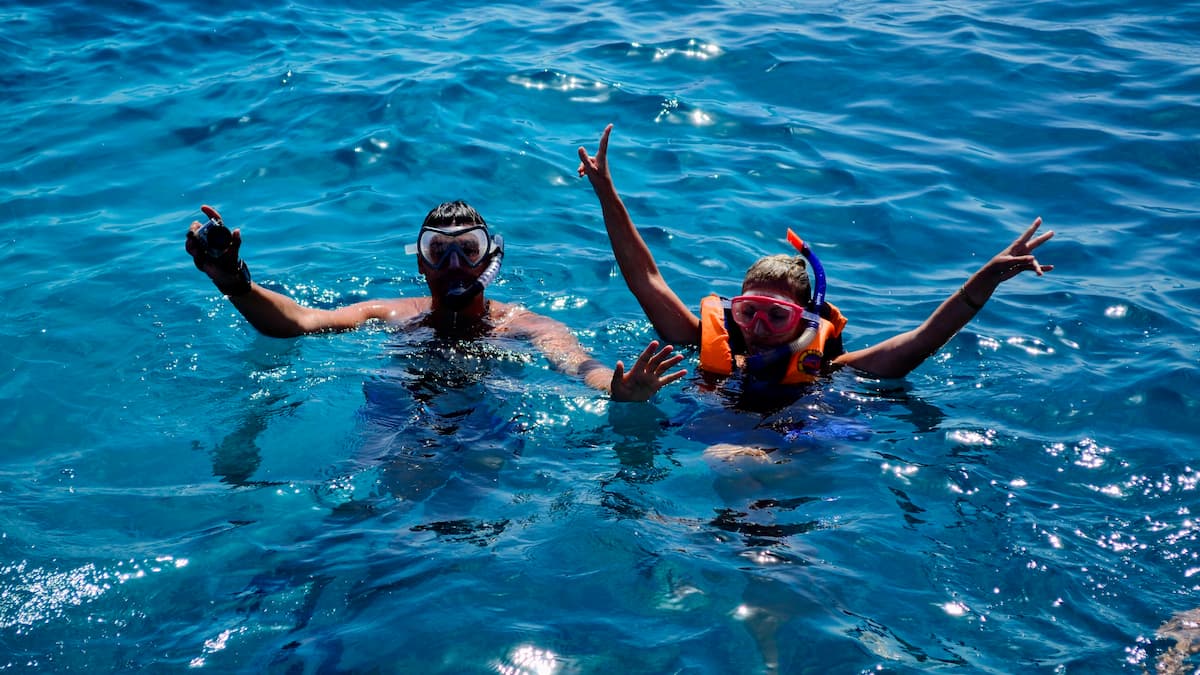Embarking on your first scuba diving adventure can be an exciting yet daunting experience.
Mexico, with its stunning marine biodiversity and crystal-clear waters, offers the perfect backdrop for novice divers.
This comprehensive guide aims to provide you with all the essential information to make your scuba diving journey in Mexico both safe and unforgettable.
Mexico is renowned for its diverse marine ecosystems, making it an ideal destination for scuba diving enthusiasts.
From the vibrant coral reefs of Cozumel to the mysterious cenotes of the Yucatan Peninsula, the country offers a variety of diving experiences for beginners.
Scuba diving in Mexico provides an opportunity to explore underwater worlds teeming with life, including colorful fish, majestic manta rays, and playful sea turtles.
For beginners, Mexico’s warm waters and excellent visibility make it a comfortable and safe environment to learn the basics of scuba diving. The region’s extensive dive infrastructure, including numerous dive shops and certified instructors, ensures that new divers receive quality training and support.
Moreover, Mexico’s rich cultural heritage and stunning coastal landscapes add an extra layer of enjoyment to the diving experience.
Why choose Mexico for scuba diving?
Choosing Mexico for your first scuba diving experience comes with several benefits.
The country’s dive sites are accessible year-round, with optimal conditions for beginners. Additionally, the affordability of diving courses and the availability of English-speaking instructors make it a convenient choice for international travelers.
Whether you’re looking to explore the Great Maya Barrier Reef or the underwater caves of Tulum, Mexico has something to offer every aspiring diver.
Choosing the right scuba diving school
Selecting the right scuba diving school is crucial for a positive learning experience. When choosing a school, consider factors such as the reputation of the institution, the experience and qualifications of the instructors, and the quality of the equipment.
Reputable dive schools in Mexico adhere to international standards set by organizations like PADI (Professional Association of Diving Instructors) and NAUI (National Association of Underwater Instructors).
Certifications and safety standards
Ensure that the dive school you choose is certified by recognized international diving organizations.
Certification ensures that the school follows rigorous safety protocols and provides quality training. Ask about the student-to-instructor ratio, as smaller groups often result in more personalized instruction and a safer learning environment.
Additionally, inquire about the school’s emergency procedures and the availability of first aid and oxygen equipment.
YOU CAN ALSO READ: How to choose the right diving school: accreditation and more
Top scuba diving destinations in Mexico
Mexico boasts some of the world’s most spectacular dive sites, each offering unique experiences for beginners. Here are some of the top scuba diving destinations in Mexico:
Cozumel
Cozumel is renowned for its crystal-clear waters and vibrant coral reefs.
The island offers a variety of dive sites suitable for beginners, including the famous Palancar Reef and Santa Rosa Wall. Cozumel’s warm waters and excellent visibility make it an ideal location for novice divers.
Cancun and Isla Mujeres
Cancun and Isla Mujeres are popular dive destinations known for their diverse marine life and underwater sculptures.
The MUSA (Museo Subacuático de Arte) underwater museum features over 500 life-size sculptures, providing a unique diving experience. Additionally, the nearby Manchones Reef offers encounters with colorful fish, sea turtles, and rays.
Playa del Carmen
Playa del Carmen is a gateway to the Great Maya Barrier Reef, the second-largest coral reef system in the world.
The area is home to numerous dive sites, including vibrant reefs and intriguing shipwrecks. Playa del Carmen also offers seasonal bull shark diving, providing an exhilarating experience for more adventurous beginners.
Tulum and cenotes
Tulum is famous for its cenotes—natural sinkholes filled with fresh water.
Cenote diving offers a unique experience, allowing divers to explore underwater caves and caverns.
The crystal-clear waters of cenotes such as Dos Ojos and Gran Cenote provide excellent visibility and stunning geological formations.
YOU CAN ALSO READ: Cenote Diving in Playa del Carmen: An Unforgettable Experience
Preparing for your first dive
Preparation is key to a successful and enjoyable diving experience.
Here are some steps to help you get ready for your first dive:
Physical fitness
Scuba diving requires a moderate level of physical fitness. Ensure that you are in good health and free from any medical conditions that may affect your ability to dive. Regular exercise, such as swimming and cardio workouts, can help improve your stamina and lung capacity.
Mental preparation
Mental preparation is just as important as physical fitness. Learn to stay calm and composed underwater.
Practice relaxation techniques such as deep breathing and visualization to help manage anxiety and stress. Remember that scuba diving is a gradual learning process, and it’s normal to feel nervous initially.
Equipment familiarization
Familiarize yourself with your scuba gear before the dive.
Practice assembling and disassembling your equipment, and learn how to operate each component. Understanding your gear will boost your confidence and ensure that you can handle any issues that may arise underwater.
Pre-dive briefing
Attend the pre-dive briefing conducted by your instructor.
The briefing will cover essential information about the dive site, safety procedures, and emergency protocols. Pay close attention and ask questions if you have any concerns. The more informed you are, the more comfortable you will feel during the dive.
Safety tips for beginner divers
Safety is paramount in scuba diving.
Here are some essential safety tips for beginner divers:
Always dive with a buddy
Never dive alone.
Diving with a buddy ensures that you have someone to assist you in case of an emergency. Always stay within visual and communication range of your buddy, and perform regular buddy checks before and during the dive.
Monitor your air supply
Keep a close eye on your air supply and inform your buddy when you reach half of your tank capacity. Plan your dive so that you have enough air to safely return to the surface, including a safety stop. Avoid overexerting yourself to conserve air.
Practice controlled breathing
Breathing slowly and deeply helps you conserve air and maintain buoyancy control. Avoid holding your breath, as this can lead to lung overexpansion injuries. Focus on a steady and relaxed breathing pattern throughout the dive.
Ascend slowly and safely
Ascend at a controlled rate of no more than 18 meters (60 feet) per minute.
Perform a safety stop at 5 meters (15 feet) for 3-5 minutes to allow excess nitrogen to be released from your body.
Avoid rapid ascents, as they can cause decompression sickness.
YOU CAN ALSO READ: Preparing for your first deep sea dive: what you need to know
Exploring marine life in mexican waters
Mexico’s waters are home to a diverse array of marine life, providing endless opportunities for exploration and discovery.
As a beginner diver, you’ll encounter a variety of species that will captivate and inspire you.
Coral reefs and fish
Mexico’s coral reefs are teeming with colorful fish and other marine creatures.
Look out for parrotfish, angelfish, and butterflyfish, as well as larger species like groupers and snappers. The reefs also provide habitat for invertebrates such as sea urchins, starfish, and sponges.
Sea turtles
Sea turtles are a common sight in Mexican waters. These gentle creatures can often be seen gliding gracefully through the water or resting on the reef.
Popular dive sites for turtle encounters include Cozumel, Akumal, and the Great Maya Barrier Reef.
Rays and sharks
While encounters with rays and sharks can be thrilling, it’s important to remember that these animals are generally not a threat to humans. Look out for spotted eagle rays, stingrays, and nurse sharks, which are commonly found in the region. During certain times of the year, you may also have the chance to dive with whale sharks and bull sharks.
Marine mammals
Mexico’s waters are home to a variety of marine mammals, including dolphins and whales. While diving, you may be lucky enough to hear the songs of humpback whales or see pods of dolphins playing in the distance.
These encounters are truly magical and highlight the richness of Mexico’s marine biodiversity.
YOU CAN ALSO READ: Diving with sharks: safety tips and best practices
The role of dive guides in your diving experience
Dive guides play a crucial role in ensuring a safe and enjoyable diving experience.
Their expertise and local knowledge can greatly enhance your understanding and appreciation of the underwater world.
Expertise and safety
Dive guides are trained professionals with extensive knowledge of diving techniques, safety protocols, and marine life. They provide essential support and guidance, helping you navigate dive sites, monitor your air supply, and manage buoyancy. In the event of an emergency, dive guides are equipped to handle the situation and ensure your safety.
Local knowledge
Dive guides possess intimate knowledge of the local dive sites and marine life. They can point out interesting features and species that you might otherwise miss, enriching your diving experience. Their insights into the behavior and ecology of marine animals add depth to your understanding of the underwater world.
Enhancing your experience
A good dive guide can make your diving experience more enjoyable and memorable. They share fascinating facts about the dive site, provide tips for improving your diving skills, and create a relaxed and fun atmosphere. Building a rapport with your dive guide can enhance your confidence and comfort in the water.
Common challenges and how to overcome them
As a beginner diver, you may encounter some challenges during your diving journey. Here are common challenges and tips for overcoming them:
Equalizing pressure
Equalizing pressure in your ears and sinuses is essential to avoid discomfort and potential injury.
Practice the Valsalva maneuver or other equalization techniques before and during your descent. If you experience difficulty equalizing, ascend a few feet and try again.
Never force equalization, as this can cause damage.
Buoyancy control
Achieving and maintaining neutral buoyancy can be challenging for beginners.
Practice buoyancy control in a controlled environment, such as a swimming pool, before your open water dives. Use your BCD and breath control to fine-tune your buoyancy. Regular practice will help you develop this essential skill.
Mask clearing
Clearing water from your mask can be intimidating at first.
Practice mask clearing techniques in shallow water until you feel comfortable. Remember to tilt your head back, press the top of the mask against your forehead, and exhale through your nose to expel water.
Managing anxiety
It’s normal to feel anxious before your first dive.
Practice relaxation techniques such as deep breathing and visualization to calm your nerves. Focus on the beauty of the underwater world and trust in your training and equipment. If you feel overwhelmed, signal your instructor and ascend slowly.
Conclusion
Scuba diving in Mexico offers an unparalleled opportunity to explore vibrant marine ecosystems and encounter fascinating underwater creatures.
As a beginner, choosing the right dive school, obtaining proper certification, and investing in quality gear are essential steps to ensure a safe and enjoyable experience.
By following the tips and guidelines outlined in this guide, you can embark on your scuba diving journey with confidence.
Ready to start your scuba diving adventure?
Contact Pluto Dive today to learn more about our beginner diving courses and to request a quote.
Our experienced instructors and comprehensive training programs will help you dive into the wonders of Mexico’s underwater world safely and confidently.
Contact Pluto Dive Today!
- Location: 40th Street between 5th and 10th Avenues, Playa del Carmen, Mexico
- Email: plutodive@gmail.com
- Phone: +52 984 151 9045 | +52 984 151 9046
Take the first step towards an unforgettable diving adventure with Pluto Dive.
Let us help you discover the beauty and excitement of scuba diving in Mexico.



